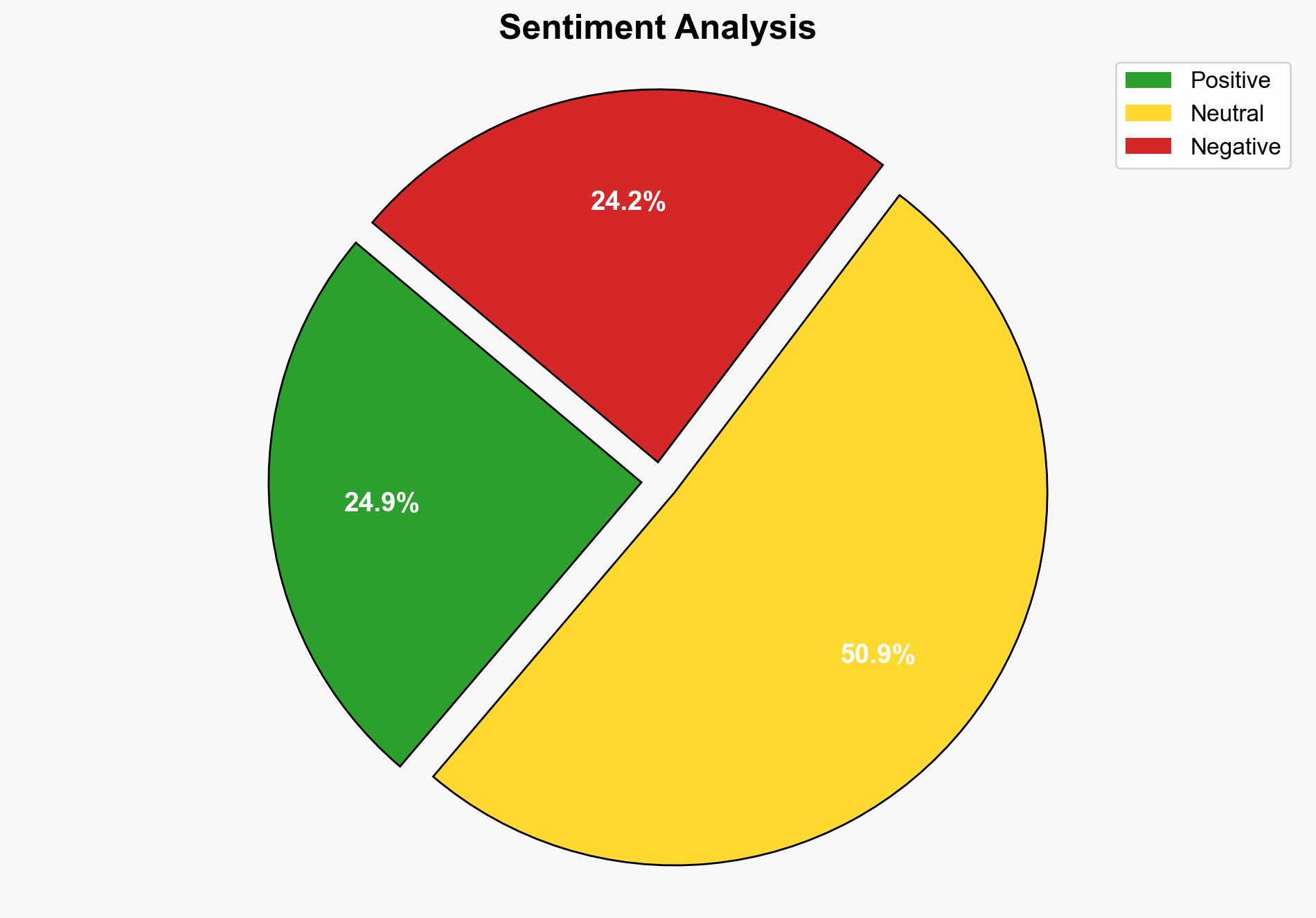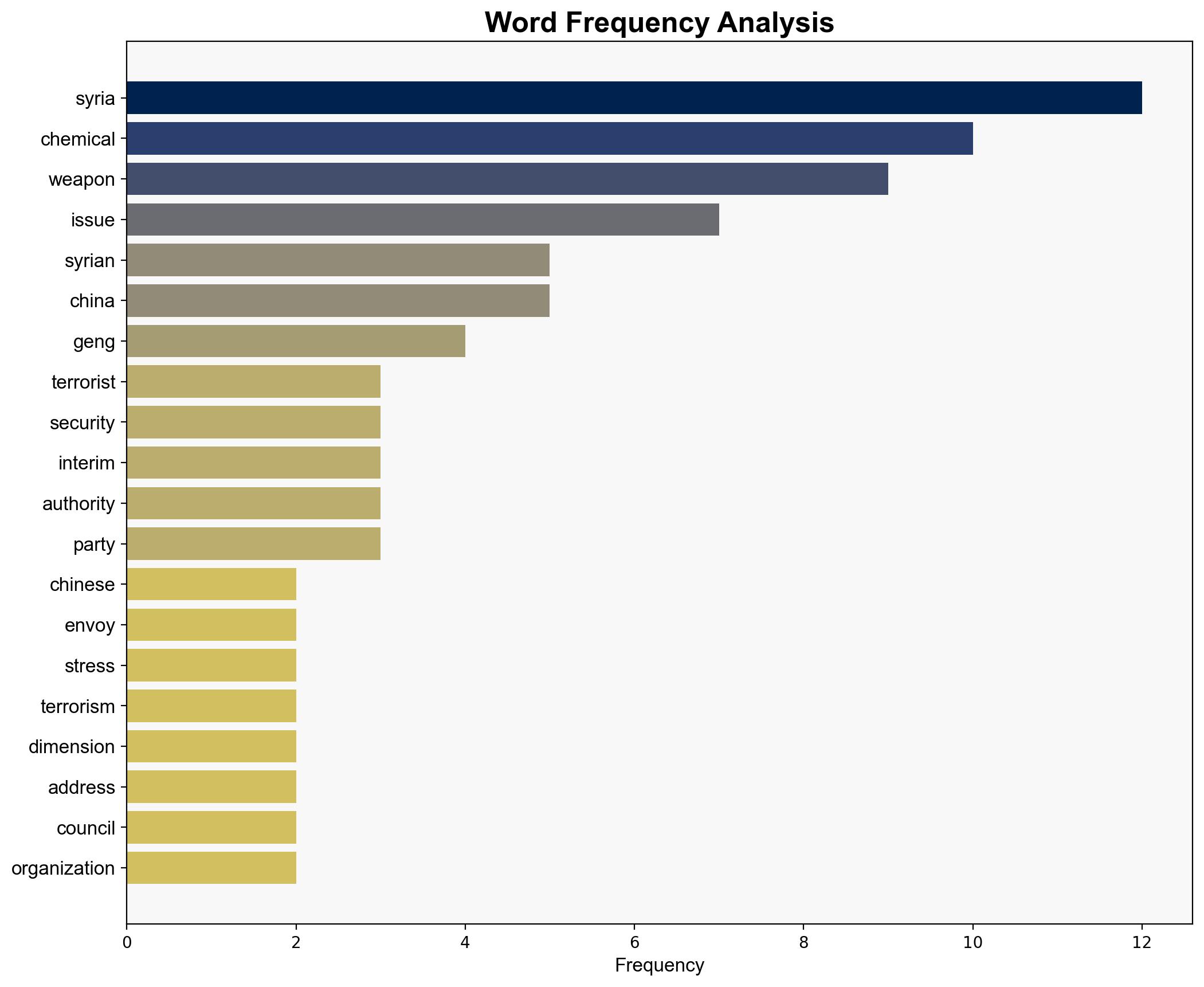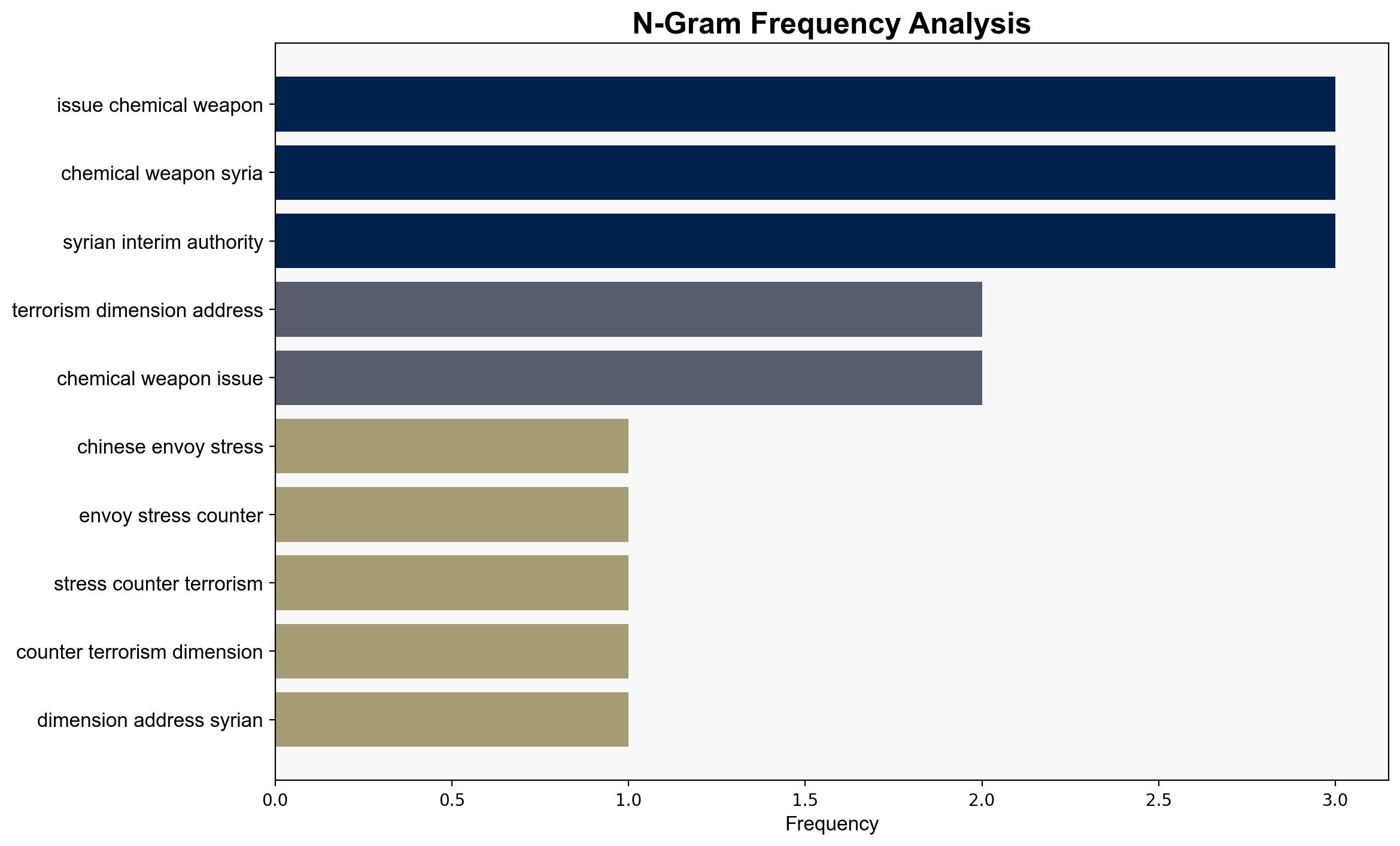Chinese envoy stresses counter-terrorism dimension in addressing Syrian chemical weapons issue – Globalsecurity.org
Published on: 2025-09-13
Intelligence Report: Chinese envoy stresses counter-terrorism dimension in addressing Syrian chemical weapons issue – Globalsecurity.org
1. BLUF (Bottom Line Up Front)
The most supported hypothesis is that China is emphasizing the counter-terrorism dimension in the Syrian chemical weapons issue to strengthen its geopolitical influence and align with broader international counter-terrorism efforts. Confidence level: Moderate. Recommended action: Monitor China’s diplomatic engagements and its influence on the UN Security Council’s decisions regarding Syria.
2. Competing Hypotheses
1. **Hypothesis 1**: China is genuinely concerned about the threat of chemical weapons falling into the hands of terrorist organizations in Syria and is advocating for a comprehensive approach to address this risk.
2. **Hypothesis 2**: China’s emphasis on the counter-terrorism dimension is a strategic maneuver to increase its influence in the Middle East and align itself with global counter-terrorism narratives, potentially deflecting attention from its internal policies regarding groups like the East Turkistan Islamic Movement.
Using the Analysis of Competing Hypotheses (ACH) 2.0, Hypothesis 2 is better supported due to China’s historical pattern of leveraging international issues to bolster its geopolitical standing and the strategic mention of the East Turkistan Islamic Movement, which aligns with China’s domestic security concerns.
3. Key Assumptions and Red Flags
– **Assumptions**:
– China’s statements are reflective of its genuine security concerns.
– The mention of the East Turkistan Islamic Movement is directly related to the Syrian context.
– **Red Flags**:
– Potential bias in interpreting China’s intentions due to its known strategic interests in the region.
– Lack of specific evidence linking Syrian chemical weapons to terrorist groups.
– **Blind Spots**:
– Insufficient information on the actual threat level of chemical weapons in Syria.
– Limited insight into China’s internal decision-making processes regarding its foreign policy.
4. Implications and Strategic Risks
– **Geopolitical Risks**: China’s involvement could shift power dynamics in the Middle East, affecting US and Russian interests.
– **Escalation Scenarios**: Increased military actions by regional actors like Israel could complicate diplomatic resolutions.
– **Economic Dimensions**: Potential sanctions or economic measures against entities involved in chemical weapons proliferation.
– **Psychological Impact**: Heightened tensions could lead to increased regional instability and humanitarian crises.
5. Recommendations and Outlook
- Enhance intelligence collection on China’s diplomatic activities in the UN and Middle East.
- Engage in multilateral dialogues to address the chemical weapons issue while considering counter-terrorism strategies.
- Scenario Projections:
– **Best Case**: Successful diplomatic resolution with China’s constructive involvement.
– **Worst Case**: Escalation of regional conflicts due to misaligned international efforts.
– **Most Likely**: Continued diplomatic negotiations with slow progress due to competing interests.
6. Key Individuals and Entities
– Geng Shuang
– East Turkistan Islamic Movement
7. Thematic Tags
national security threats, cybersecurity, counter-terrorism, regional focus





